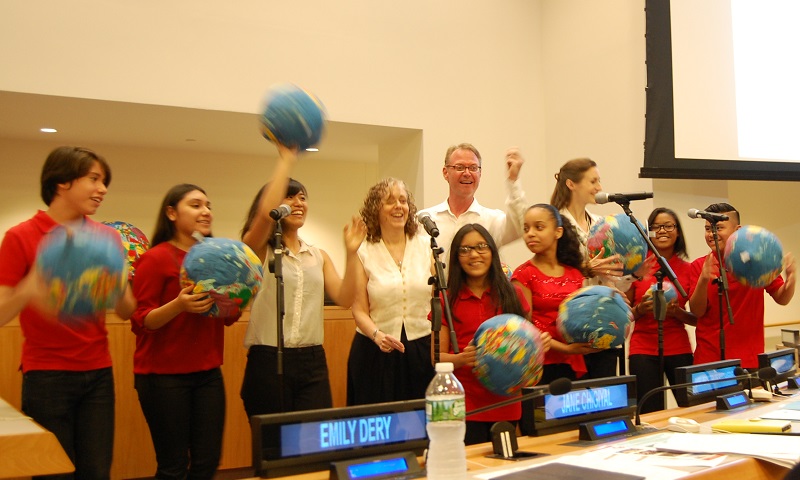
Poor mental health has greater negative effects on the most vulnerable and marginalized people. Out of nearly 2 billion young people in the world, 1 in 5 will experience a mental health condition in their lifetime and less than 20% receive the help they need. 90% of them live in low-income countries, contributing to the cycle of poverty. Many older persons suffer from dementia and depression, but these illnesses are typically left untreated because it is often thought of as a normal part of ageing. Indigenous communities suffer from mental health problems too, amplified by poverty, marginalization and inequality. Poor mental health in these communities has led to high rates of suicide and self-harm, particularly among indigenous youth.
Recognizing the need to address mental wellness on a global scale, the United Nations has included “mental health and wellbeing” in Sustainable Development Goal (SDG) 3.4, with the aim of reducing deaths from mental health issues by one third by 2030. It is time to turn this SDG into reality. At a side event held 7 September, ahead of the General Assembly, at UN Headquarters in New York, Member State and UN representatives, civil society members, as well as mental health experts discussed implementation of this Goal on a global scale.
Mental wellness is not just a health issue. Mental health and wellbeing affects many other aspects of the 2030 Agenda for Sustainable Development, lending to cycles of poverty, inequality, unemployment, stigmatization and discrimination, according to Dr. Caleb Otto, Permanent Representative of Palau to the UN. Marginalized communities suffer the most from poor mental wellbeing.
Canadian Permanent Representative to the UN, Marc-Andre Blanchard, also spoke about how war and conflict can have adverse effects on mental health. Refugees and peacekeepers alike often suffer silently from mental issues, without adequate care. Marc Pecsteen de Buytswerve, Permanent Representative of Belgium to the UN, called on health systems around the world to do more for mental wellness and to end the stigmas against these conditions. We must take action by breaking down barriers to treatment and recognizing these conditions as real health concerns.
It is not only the responsibility of Member States to do more for mental wellbeing. Emily Dery of the Clinton Global Initiative spoke of how private partnerships can strengthen health systems to promote mental wellness. Ka’nahsohon Kevin Deer, an elder of the Mohawk First Nation, shared his experience with traditional healing and teaching to cope with mental illness in indigenous communities, which are often left behind when addressing mental health.
Concrete steps need to be taken to turn the goal of promoting mental wellness into reality. The proposed partnerships and lessons learned from this event should be brought to the attention of world leaders and inform their debates as they convene for the UN General Assembly, which opens 13 September.
The event included musical presentations by Russell Daisey and youth performers from the Rybin Studio of Drama. The side event was organized by the Permanent Missions of Palau and Canada to the United Nations, as well as the International Association of Applied Psychology (IAAP).
Learn more about our work on social development at social.un.org
Source & Copyright: UNDESA DSPD
 Welcome to the United Nations
Welcome to the United Nations